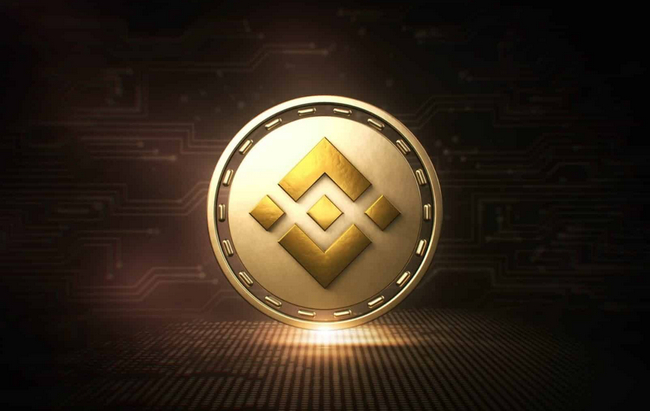-
 Bitcoin
Bitcoin $102,163.2697
6.02% -
 Ethereum
Ethereum $2,150.5881
19.90% -
 Tether USDt
Tether USDt $1.0002
-0.01% -
 XRP
XRP $2.2816
8.03% -
 BNB
BNB $621.9127
3.90% -
 Solana
Solana $160.9056
10.18% -
 USDC
USDC $0.9999
-0.01% -
 Dogecoin
Dogecoin $0.1919
12.84% -
 Cardano
Cardano $0.7428
12.87% -
 TRON
TRON $0.2549
2.81% -
 Sui
Sui $3.9413
20.96% -
 Chainlink
Chainlink $15.6333
15.00% -
 Avalanche
Avalanche $21.5896
11.76% -
 Stellar
Stellar $0.2857
10.70% -
 Shiba Inu
Shiba Inu $0.0...01415
12.36% -
 Bitcoin Cash
Bitcoin Cash $418.6912
17.25% -
 UNUS SED LEO
UNUS SED LEO $8.8588
1.73% -
 Pi
Pi $0.6406
10.47% -
 Hedera
Hedera $0.1918
10.27% -
 Toncoin
Toncoin $3.2151
7.17% -
 Hyperliquid
Hyperliquid $23.1281
10.85% -
 Litecoin
Litecoin $93.2866
5.66% -
 Polkadot
Polkadot $4.3578
11.64% -
 Monero
Monero $297.8483
6.26% -
 Dai
Dai $1.0002
0.00% -
 Bitget Token
Bitget Token $4.4492
5.91% -
 Ethena USDe
Ethena USDe $1.0003
-0.04% -
 Pepe
Pepe $0.0...01078
32.09% -
 Bittensor
Bittensor $417.8303
16.87% -
 Uniswap
Uniswap $5.6674
18.46%
how bnb network works
The BNB Network's dual-chain architecture, consisting of the Beacon Chain for governance and the Smart Chain for smart contract execution, ensures high performance and scalability for a wide range of blockchain applications.
Nov 06, 2024 at 03:40 pm

How the BNB Network Works: A Comprehensive Exploration
Introduction
The Binance Network (BNB), formerly known as the Binance Chain, is a high-performance blockchain platform developed by Binance, the world's largest cryptocurrency exchange. The BNB network facilitates a wide range of blockchain applications, including decentralized finance (DeFi), token issuance, smart contracts, and non-fungible tokens (NFTs). This article provides a comprehensive overview of how the BNB network operates, covering its architecture, consensus mechanism, governance, and key features.
1. Architecture and Key Components
The BNB network is a dual-chain architecture that consists of two distinct chains:
- BNB Beacon Chain (BNB): The primary chain responsible for governance, staking, and managing validators.
- BNB Smart Chain (BSC): An Ethereum Virtual Machine (EVM)-compatible chain for smart contract execution, DeFi, and NFT transactions.
2. Consensus Mechanism: Proof-of-Staked Authority (PoSA)
The BNB Beacon Chain utilizes a modified Proof-of-Staked Authority (PoSA) consensus mechanism. In this system:
- Validators: Nominated entities stake BNB tokens to participate in block validation.
- Delegators: BNB token holders can delegate their stake to validators and earn rewards.
- Voting: Validators vote on proposed blocks and changes to the network parameters.
- Finality: Once a block is validated by a sufficient number of validators, it becomes irreversible.
3. Governance: BNB Chain Governance (BCG)
The BNB Chain Governance (BCG) is a decentralized governance system that allows the BNB community to participate in decision-making related to network upgrades, fee structures, and other key parameters.
- Governance Token: BNB token holders have voting power in BCG.
- Proposal Process: Proposals can be submitted by authorized entities and voted on by token holders.
- Referendum: Proposals that receive overwhelming support may be implemented on the network.
4. Transaction Processing on BNB Smart Chain (BSC)
The BNB Smart Chain (BSC) is designed to support a wide range of decentralized applications and smart contract functionality.
- Smart Contracts: Ethereum Virtual Machine (EVM)-compatible smart contracts can be deployed on BSC.
- Transactions: Transactions on BSC require payment of gas fees in BNB tokens.
- Scalability: BSC uses a sharding mechanism to increase transaction capacity and reduce latency.
5. Cross-Chain Interoperability with Binance Chain (BNB)
The BNB Smart Chain (BSC) is connected to the BNB Beacon Chain (BNB) through a cross-chain bridge. This bridge enables the transfer of assets and data between the two chains.
- Token Pegging: BNB tokens on both chains are pegged 1:1.
- Asset Transfer: Users can transfer BNB tokens and other assets between BNB and BSC.
- Cross-Chain Communication: Smart contracts on BSC can communicate with and interact with smart contracts on BNB.
6. BNB Token Economics and Utility
The native token of the BNB network is BNB. It serves several key functions:
- Staking: BNB can be staked to become a validator or delegate to validators on the BNB Beacon Chain.
- Gas Fees: BSC transactions require payment of gas fees in BNB tokens.
- Network Governance: BNB holders have voting power in BNB Chain Governance (BCG).
- Utility Token: BNB is used for paying fees, participating in DeFi applications, and purchasing NFTs on the BSC.
7. Advantages of Using the BNB Network
- High Performance: The BNB network offers fast and low-cost transactions due to its optimized architecture and Proof-of-Staked Authority consensus mechanism.
- Ethereum Compatibility: The BNB Smart Chain's EVM compatibility enables developers to easily port existing Ethereum-based applications.
- Wide Ecosystem: The BNB network supports a growing ecosystem of DeFi applications, NFTs, and other blockchain projects.
- Strong Backing: The BNB network is backed by Binance, one of the most trusted and respected companies in the cryptocurrency industry.
8. Conclusion
The BNB network is a high-performance, decentralized blockchain platform that facilitates a wide range of blockchain applications. Its dual-chain architecture, robust consensus mechanism, and comprehensive governance system provide a stable and scalable foundation for the development of blockchain-based solutions. The network's EVM compatibility, cross-
Disclaimer:info@kdj.com
The information provided is not trading advice. kdj.com does not assume any responsibility for any investments made based on the information provided in this article. Cryptocurrencies are highly volatile and it is highly recommended that you invest with caution after thorough research!
If you believe that the content used on this website infringes your copyright, please contact us immediately (info@kdj.com) and we will delete it promptly.
- Bitcoin Jumps Above $100,000 for the First Time Since Early February
- 2025-05-09 04:15:11
- Bitcoin Tops $100,000 on Fresh Optimism
- 2025-05-09 04:15:11
- FloppyPepe (FPPE) Is Ready to Outperform Shiba Inu (SHIB) With an Anticipated 4,500% Rally
- 2025-05-09 04:10:12
- The crypto market has seen a surge in new meme coins. They are mainly from three chains: Ethereum, Solana, or Base.
- 2025-05-09 04:10:12
- Dragoin's Stage 2 Presale Is Now Live, Offering 6700% ROI
- 2025-05-09 04:05:12
- Bitcoin (BTC) Price Has Surged Past $100,000 Again But For The First Time Since January 2025
- 2025-05-09 04:05:12
Related knowledge

What is Ethereum’s Slashing mechanism and how to punish malicious behavior?
Feb 20,2025 at 03:08am
Key PointsOverview of slashingDifferent types of slashing in EthereumIncentives and consequences of slashingIdentifying and reporting slashed validatorsOngoing discussions and potential improvementsEthereum's Slashing Mechanism: Punishing Malicious BehaviorEthereum's slashing mechanism is an essential tool for ensuring network security and punishing mal...

What is the verifier node of Ethereum and how to become a verifier?
Feb 19,2025 at 06:00pm
The Verifier Node of Ethereum: A Comprehensive GuideKey Points:What is a Verifier Node?How to Become a Verifier NodeResponsibilities and Rewards of a Verifier NodeMinimum Requirements for Becoming a Verifier NodePotential Difficulties in Running a Verifier Node1. What is a Verifier Node?A Verifier Node is an independent entity on the Ethereum network th...

What is Ethereum’s staking, and how to participate and earn money?
Feb 19,2025 at 04:37pm
Key Points:Understanding Ethereum's Staking MechanismSteps to Participate in StakingBenefits and Rewards of StakingSecurity and Risk ConsiderationsTechnical Requirements and Hardware OptionsPotential Challenges and Troubleshooting TipsFAQs on Ethereum StakingWhat is Ethereum's Staking?Proof-of-Stake (PoS) is a consensus mechanism used in blockchain netw...

What is Ethereum’s DAO (Decentralized Autonomous Organization) and how does it work?
Feb 20,2025 at 03:12am
Key PointsDefinition and Structure of a DAOGovernance and Decision-Making in DAOsBenefits and Use Cases of DAOsChallenges and Limitations of DAOsWhat is Ethereum's DAO (Decentralized Autonomous Organization) and How Does It Work?Definition and Structure of a DAOA Decentralized Autonomous Organization (DAO) is an innovative governance and management fram...

What is Ethereum's multi-signature wallet and how to improve security?
Feb 20,2025 at 02:18pm
Key Points:Understanding the Concept of a Multi-Signature WalletBenefits and Drawbacks of Multisig WalletsRequirements for Setting Up a Multisig WalletStep-by-Step Guide to Generating a Multisig WalletImplementing Strategies for Enhanced Security1. Understanding the Concept of a Multi-Signature WalletA multi-signature (multisig) wallet in the Ethereum e...

What is Ethereum's oracle and how to provide data for smart contracts?
Feb 21,2025 at 01:30am
Key Points:Understanding the concept of oracles in EthereumExploring different types of oraclesDetailed guide on how to provide data for smart contractsAddressing potential challenges and considerationsWhat is Ethereum's Oracle?Oracles are crucial components in the Ethereum ecosystem, enabling smart contracts to access real-world data and off-chain even...

What is Ethereum’s Slashing mechanism and how to punish malicious behavior?
Feb 20,2025 at 03:08am
Key PointsOverview of slashingDifferent types of slashing in EthereumIncentives and consequences of slashingIdentifying and reporting slashed validatorsOngoing discussions and potential improvementsEthereum's Slashing Mechanism: Punishing Malicious BehaviorEthereum's slashing mechanism is an essential tool for ensuring network security and punishing mal...

What is the verifier node of Ethereum and how to become a verifier?
Feb 19,2025 at 06:00pm
The Verifier Node of Ethereum: A Comprehensive GuideKey Points:What is a Verifier Node?How to Become a Verifier NodeResponsibilities and Rewards of a Verifier NodeMinimum Requirements for Becoming a Verifier NodePotential Difficulties in Running a Verifier Node1. What is a Verifier Node?A Verifier Node is an independent entity on the Ethereum network th...

What is Ethereum’s staking, and how to participate and earn money?
Feb 19,2025 at 04:37pm
Key Points:Understanding Ethereum's Staking MechanismSteps to Participate in StakingBenefits and Rewards of StakingSecurity and Risk ConsiderationsTechnical Requirements and Hardware OptionsPotential Challenges and Troubleshooting TipsFAQs on Ethereum StakingWhat is Ethereum's Staking?Proof-of-Stake (PoS) is a consensus mechanism used in blockchain netw...

What is Ethereum’s DAO (Decentralized Autonomous Organization) and how does it work?
Feb 20,2025 at 03:12am
Key PointsDefinition and Structure of a DAOGovernance and Decision-Making in DAOsBenefits and Use Cases of DAOsChallenges and Limitations of DAOsWhat is Ethereum's DAO (Decentralized Autonomous Organization) and How Does It Work?Definition and Structure of a DAOA Decentralized Autonomous Organization (DAO) is an innovative governance and management fram...

What is Ethereum's multi-signature wallet and how to improve security?
Feb 20,2025 at 02:18pm
Key Points:Understanding the Concept of a Multi-Signature WalletBenefits and Drawbacks of Multisig WalletsRequirements for Setting Up a Multisig WalletStep-by-Step Guide to Generating a Multisig WalletImplementing Strategies for Enhanced Security1. Understanding the Concept of a Multi-Signature WalletA multi-signature (multisig) wallet in the Ethereum e...

What is Ethereum's oracle and how to provide data for smart contracts?
Feb 21,2025 at 01:30am
Key Points:Understanding the concept of oracles in EthereumExploring different types of oraclesDetailed guide on how to provide data for smart contractsAddressing potential challenges and considerationsWhat is Ethereum's Oracle?Oracles are crucial components in the Ethereum ecosystem, enabling smart contracts to access real-world data and off-chain even...
See all articles




















































































